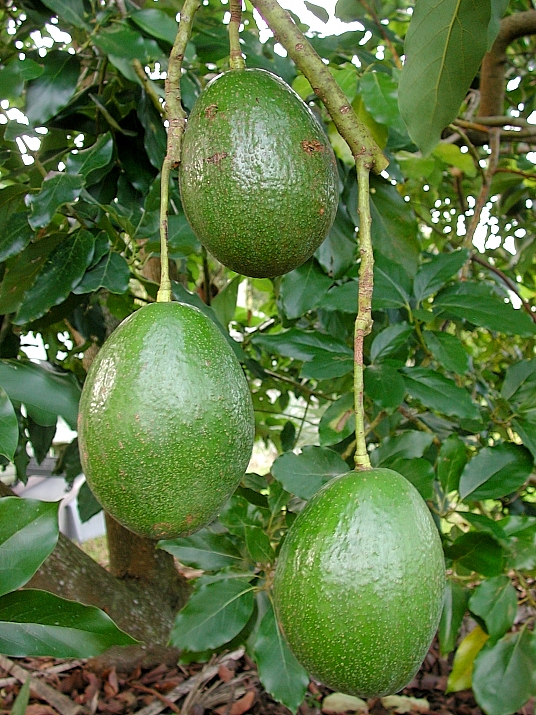Alligator Pear: The Ultimate Guide To Avocado
Alligator pear, a term often used to describe the beloved avocado, has gained immense popularity in recent years. Known for its creamy texture and rich flavor, this fruit is not only a delicious addition to various dishes but also packed with numerous health benefits. In this comprehensive guide, we will explore everything you need to know about alligator pear, including its nutritional value, culinary uses, and much more.
The avocado, or alligator pear, is a versatile fruit that has become a staple in many kitchens around the world. Whether enjoyed in guacamole, sliced on toast, or blended into smoothies, its unique taste and texture make it a favorite among food enthusiasts. Moreover, the nutritional profile of alligator pear makes it a smart choice for those looking to improve their diet.
In this article, we will delve into the history, health benefits, and various ways to incorporate alligator pear into your meals. With an emphasis on expertise and trustworthy information, we aim to provide a resource that not only informs but also inspires readers to enjoy this incredible fruit.
Table of Contents
- 1. History of Alligator Pear
- 2. Nutritional Value of Alligator Pear
- 3. Health Benefits of Alligator Pear
- 4. Culinary Uses of Alligator Pear
- 5. Cultivation of Alligator Pear
- 6. Varieties of Alligator Pear
- 7. Storing Alligator Pear
- 8. Conclusion
1. History of Alligator Pear
The avocado, or alligator pear, has a rich history that dates back thousands of years. Native to Central America, the avocado was cultivated by the Aztecs and the Mayans as early as 500 B.C. They regarded the fruit as a symbol of fertility and were known to use it in various dishes.
In the early 20th century, the avocado was introduced to the United States, where it quickly gained popularity. Today, California is one of the largest producers of avocados in the world, with millions of pounds harvested each year.
2. Nutritional Value of Alligator Pear
Alligator pear is not only delicious but also incredibly nutritious. It is rich in healthy fats, vitamins, and minerals that contribute to overall health. Below is a breakdown of the nutritional value of 100 grams of avocado:
- Calories: 160
- Fat: 15 grams
- Carbohydrates: 9 grams
- Fiber: 7 grams
- Protein: 2 grams
- Vitamin K: 26% of the Daily Value (DV)
- Vitamin E: 10% of the DV
- Vitamin C: 17% of the DV
- Folate: 20% of the DV
- Potassium: 14% of the DV
3. Health Benefits of Alligator Pear
Incorporating alligator pear into your diet can provide numerous health benefits. Here are some of the key advantages:
- Heart Health: The monounsaturated fats found in avocados can help lower cholesterol levels, reducing the risk of heart disease.
- Weight Management: The high fiber content in alligator pear promotes satiety, aiding in weight management.
- Improved Digestion: The fiber in avocados supports digestive health by preventing constipation.
- Rich in Antioxidants: Avocados contain antioxidants that help combat oxidative stress and inflammation.
- Bone Health: The vitamin K and calcium in avocados contribute to strong bones and overall skeletal health.
4. Culinary Uses of Alligator Pear
Alligator pear is incredibly versatile in the kitchen. Here are some popular ways to use this delicious fruit:
4.1 Guacamole
Guacamole is one of the most famous dishes made with alligator pear. Simply mash ripe avocados and mix with lime juice, salt, and your choice of spices for a delicious dip.
4.2 Avocado Toast
Sliced avocado on toast has become a trendy breakfast option. Top with tomatoes, eggs, or herbs for added flavor.
4.3 Smoothies
Adding avocado to smoothies gives them a creamy texture and boosts their nutritional content.
4.4 Salads
Chopped avocado makes an excellent addition to salads, adding richness and flavor.
5. Cultivation of Alligator Pear
Growing alligator pear can be a rewarding experience. Here are some essential tips for cultivating avocados:
- Climate: Avocado trees thrive in warm, subtropical climates.
- Soil: Well-draining soil is crucial for healthy avocado growth.
- Watering: Regular watering is necessary, especially during dry spells.
- Pruning: Pruning helps maintain tree shape and promotes better fruit production.
6. Varieties of Alligator Pear
There are several varieties of alligator pear, each with its unique flavor and texture. Some popular types include:
- Hass: Known for its creamy texture and rich flavor, it is the most popular variety.
- Fuerte: This variety has a smooth skin and a milder taste.
- Bacon: A less common variety with a lighter flavor.
- Pinkerton: Known for its high oil content and long harvest season.
7. Storing Alligator Pear
To keep alligator pear fresh, it's essential to store it correctly. Here are some tips:
- Unripe avocados should be stored at room temperature until they ripen.
- Once ripe, avocados can be refrigerated to extend their shelf life.
- To prevent browning, store cut avocados with lime juice or wrap tightly in plastic wrap.
8. Conclusion
In conclusion, alligator pear, or avocado, is a nutrient-rich fruit that offers a myriad of health benefits and culinary uses. By incorporating this versatile ingredient into your meals, you can enhance your diet and enjoy its delicious flavor. We encourage you to share your thoughts and experiences with alligator pear in the comments below, and don't forget to explore more articles on our site!
Thank you for reading! We hope you found this guide informative and engaging. Come back soon for more tips and recipes centered around your favorite foods.
Unveiling The Life Of Zoey Luna: A Rising Star In Hollywood
Mike Tyson's Wife: A Deep Dive Into His Marital Journey
Gimme Gimme Disco: The Ultimate 70s Dance Experience


